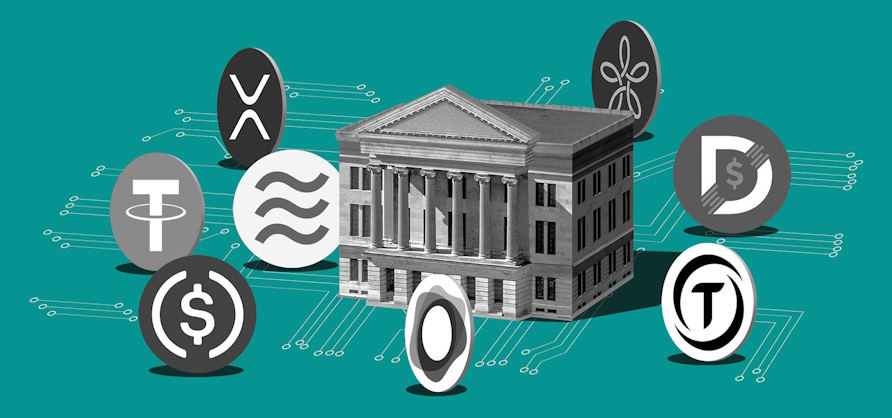Regulatory Challenges for New Crypto Coins
With the rapid rise and widespread adoption of cryptocurrency, new crypto coins have emerged as a popular avenue for investment and financial transactions. However, the decentralized and borderless nature of crypto coins presents unique regulatory challenges for governments and regulatory bodies around the world. As these digital assets continue to evolve and gain prominence, it becomes crucial to establish effective regulatory frameworks that strike a balance between fostering innovation and ensuring investor protection.
Overview of Regulatory Challenges
The world of cryptocurrencies has ushered in a new era of financial innovation, but it also brings forth a host of regulatory challenges that need to be addressed. One of the primary hurdles faced by regulators is the lack of clear definitions and classifications for crypto coins. Unlike traditional financial instruments, crypto coins operate on decentralized networks and utilize blockchain technology, making them unique and challenging to categorize. Governments and regulatory bodies struggle to differentiate between various types of crypto coins, such as utility tokens, security tokens, and stablecoins, each having distinct characteristics and implications for regulation.
In addition to the lack of clear definitions, identifying the appropriate regulatory bodies for overseeing crypto coins presents another significant challenge. The decentralized nature of cryptocurrencies often blurs jurisdictional lines, leading to conflicts between different regulatory authorities. Harmonizing regulations across borders is a complex task, as each jurisdiction may have differing perspectives on the treatment of crypto coins. This regulatory fragmentation can hinder innovation and create uncertainty for businesses operating in the crypto space.

Cross-border transactions in crypto coins further amplify the challenges faced by regulators. Jurisdictional conflicts become more pronounced when transactions occur across different countries, as each nation may have its own regulations governing the use and exchange of cryptocurrencies. The impact of international regulations on new crypto coins can be substantial, affecting their usability, liquidity, and overall market dynamics. Achieving a harmonized approach to cross-border regulation is essential for promoting global adoption and ensuring a level playing field for market participants.
Another critical aspect of regulatory challenges in the crypto space is investor protection and market integrity. Transparency and disclosure requirements play a crucial role in safeguarding investors and maintaining market confidence. Regulators need to establish mechanisms that promote transparency in token issuance, token sales, and trading activities. Furthermore, preventing fraud, market manipulation, and insider trading is of utmost importance to ensure a fair and trustworthy market environment for all participants. Regulators must devise effective measures and surveillance systems to detect and deter illicit activities within the crypto ecosystem.
Regulatory Uncertainty and Innovation
In the realm of cryptocurrencies, regulatory uncertainty looms as a significant challenge that affects both innovators and regulators alike. Striking a delicate balance between fostering innovation and providing adequate regulatory oversight is crucial to unlock the full potential of new crypto coins.
One of the challenges faced by regulators is the rapid pace at which technology evolves in the crypto space. Blockchain and cryptocurrency technologies are continuously advancing, introducing new functionalities, smart contracts, and decentralized applications. This fast-paced innovation often outpaces the development of regulatory frameworks, leading to a state of uncertainty. Regulators must grapple with the complexities of these emerging technologies to ensure that regulations remain relevant and effective without stifling innovation.

A potential solution to address regulatory uncertainty while promoting innovation is the establishment of regulatory sandboxes. These sandboxes provide a controlled environment where crypto startups and projects can operate under certain exemptions or relaxed regulations. By participating in a sandbox, innovators can test their products and services, collaborate with regulators, and gain valuable insights. Regulatory sandboxes play a crucial role in fostering innovation by allowing regulators to monitor and assess potential risks and benefits associated with new crypto coins. They offer a space for experimentation, enabling innovators to refine their offerings while managing the inherent risks associated with novel technologies.
It is essential for regulators to engage in proactive collaboration with industry stakeholders, including startups, academia, and technology experts. This collaborative approach can help bridge the gap between innovation and regulation, ensuring that policies are informed by the latest technological advancements. By engaging in an ongoing dialogue and keeping pace with developments, regulators can better understand the intricacies of new crypto coins and adapt regulations accordingly.


